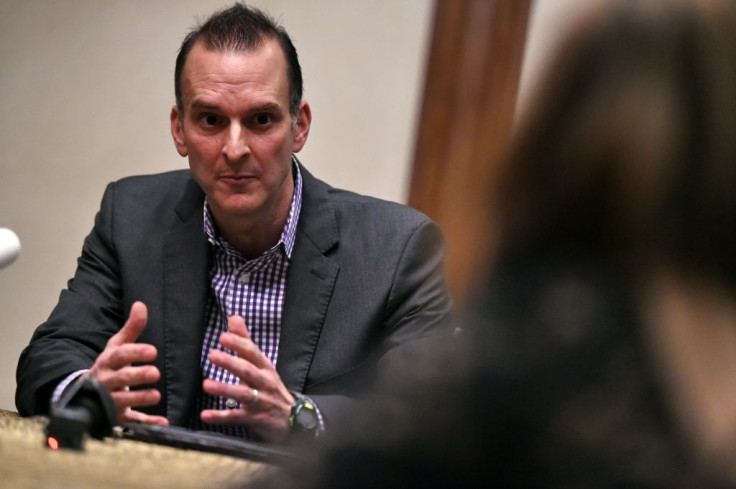US Senate Passes 'Rodchenkov' Anti-doping Bill
Legislation granting US officials the power to prosecute individuals responsible for doping conspiracies at international sporting competitions received formal approval in the US Senate on Monday.
The Rodchenkov Anti-Doping Act -- named after whistleblower Grigory Rodchenkov who lifted the lid on the Russia doping scandal in 2016 -- had already been passed by the US House of Representatives in 2019.
The legislation, which is set to be signed into law by President Donald Trump, allows the United States to seek prosecution for doping conspirators in competitions involving American athletes, with fines of up to $1 million and prison sentences of up to 10 years.
The law targets the entourages of athletes -- coaches, agents, dealers, managers and sports or government officials -- rather than athletes themselves, who are already subject to sanctions by the World Anti-Doping Agency (WADA).
"It is a monumental day in the fight for clean sport worldwide and we look forward to seeing the Act soon become law and help change the game for clean athletes for the good," United States Anti-Doping Agency (USADA) chief executive Travis Tygart said.
The legislation has become a bone of contention between WADA and US officials.
WADA has expressed concern over the law, warning it could lead to overlapping laws in different jurisdictions that weaken the principle of having one set of rules for all athletes around the world.

A WADA spokesman on Monday added that the law may potentially undermine the global anti-doping system by deterring whistleblowers from coming forward if there is a risk they could be prosecuted.
The global doping watchdog has also expressed concern that the bill could lead to the emergence of similar legislation in other countries for political reasons, such as targeting athletes from specific nations in retaliation.
WADA is also critical of the fact that the law excludes US professional leagues and college sport.
"If it is not good enough for American sports, why is it fine for the rest of the world?" a WADA spokesman said Monday.
However, Tygart maintains the legislation offers greater protection for both clean athletes and whistleblowers.
"The Act will provide the tools needed to protect clean athletes and hold accountable international doping conspiracies that defraud sport, sponsors and that harm athletes," the USADA chief said.
"(It) establishes criminal penalties for systems that carry out doping-fraud schemes that rob athletes, citizens and businesses.
"It also protects whistleblowers from retaliation and provides restitution for athletes defrauded by conspiracies to dope," Tygart said.
Rodchenkov, the former head of Russia's national anti-doping laboratory in Moscow, was heavily involved in a state-backed doping conspiracy designed to cover up Russia's cheating at the 2014 Sochi Winter Olympics and other events.
Rodchenkov detailed his involvement in the scandal in 2016, and is now living in hiding in the United States.
© Copyright AFP 2024. All rights reserved.


















